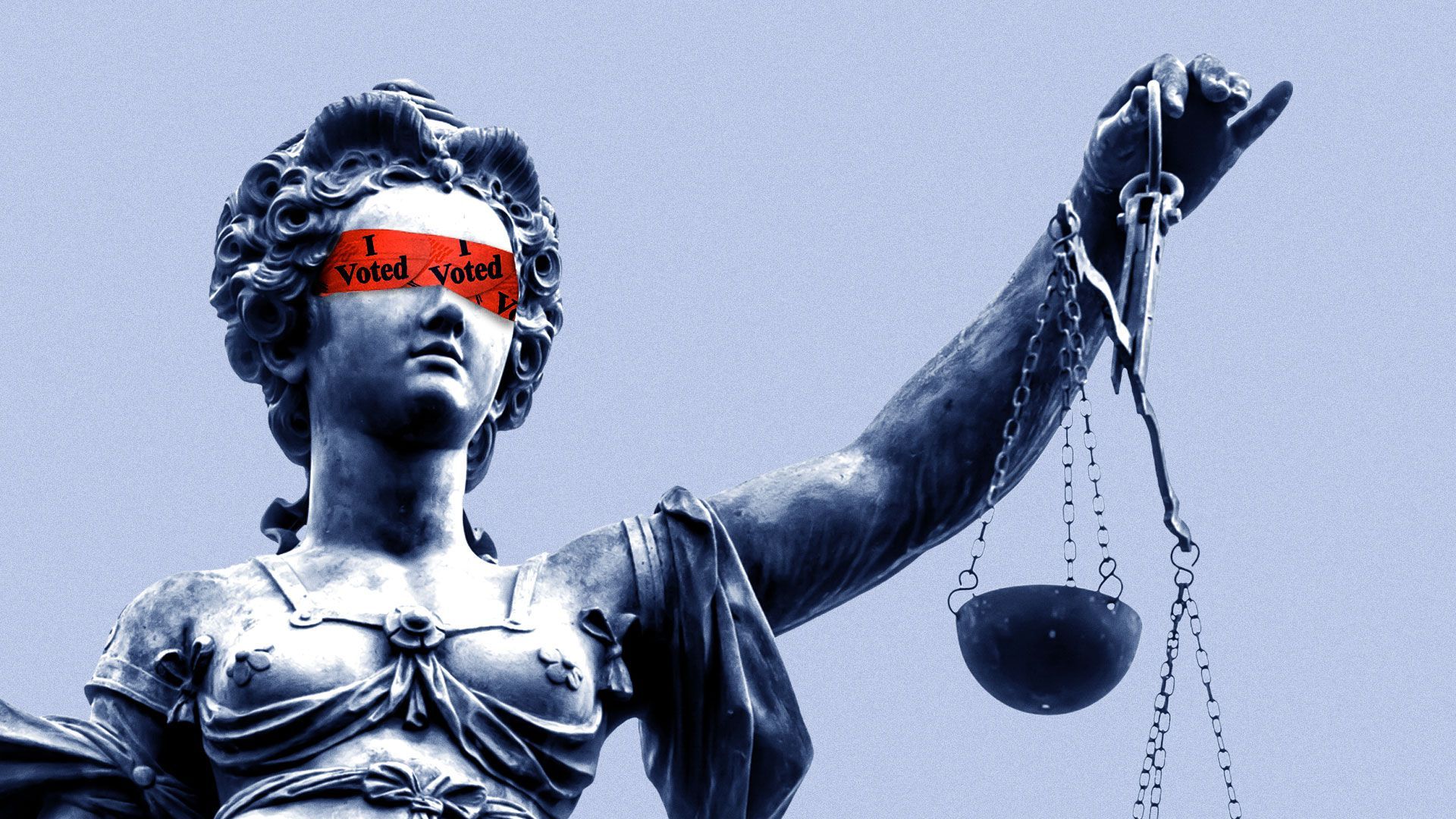2020 election strategy: Hire all the lawyers
Add Axios as your preferred source to
see more of our stories on Google.

Illustration: Eniola Odetunde/Axios
The coronavirus has sent overall U.S. unemployment into the double digits — but it's a sort of full-employment act for election law attorneys.
The big picture: The prospect of extended court fights over COVID-19-related voting changes, an absentee ballot avalanche, foreign interference and contested presidential results has prompted a hire-all-the-lawyers binge by candidates and campaigns — not just in swing states but around the country.
- No one wants to be stuck in a recount without local counsel ready to work after hours and file suits quickly. That makes preemptive lawyering-up at the states and county level as important as securing big national names.
What they're saying: "I would beg candidates and campaigns to get counsel on retainer well before the election," said Jessica Furst Johnson, a Republican election lawyer.
- "Not for any nefarious reasons, but simply to understand who to call if results or ballots are in dispute," said Johnson, who created an initiative called the Volunteer Attorney Network to train attorneys for Election Day.
- Justin Riemer, the Republican National Committee's chief counsel, says the legal work is "going to be on steroids this year," and that "capable local counsel is critical" for technical and tactical reasons.
Details: The Biden campaign is planning an election program that includes volunteer lawyers who will focus on poll monitoring and watching for potential voter suppression, as well as substantial funding for election law specialists.
- "The program underway this year is the most elaborate, highly resourced program of its kind," said Bob Bauer, a former White House counsel under President Obama who's working with the Biden campaign.
- The RNC is coordinating the legal fight for the Republicans, along with the Trump campaign and volunteers across the country. They're already involved in legal challenges in 17 states.
- Matthew Morgan, Trump 2020 general counsel, declared that "the Trump campaign is fighting to ensure every valid ballot across America counts."
Why it matters: Election-related lawsuits have been on the rise for the past two decades, but the coronavirus has supercharged them.
- Marc Elias, who was general counsel for Hillary Clinton's 2016 campaign, is involved in more than 30 ongoing election-related lawsuits in 17 states, according to his site Democracy Docket.
- Georgia Democrats this week sued the Republican secretary of state over the the long wait times — in some cases more than eight hours — that some voters faced in the June 9 primary.
Between the lines: Courts are forcing some states to write new rules or laws to preserve the constitutional right to vote during a global pandemic, without opening the door to massive fraud.
- North Carolina could see a tenfold increase in mail-in ballots. And a federal judge in the state ruled this week that primary voters who had their ballot thrown out must be given a second chance to prove that their ballot was indeed valid.
- That decision could result in as many as 100,000 additional votes being ruled valid in November — "votes that otherwise would have been discounted," said Allison Riggs, an attorney who represented voters whose ballots were rejected. She expects Republicans to appeal.
What to watch: Issues with people not receiving absentee ballots in time due to postal service delays, concerns over rejected absentee ballots, and disruptions at polling places because of poll worker shortages could fuel litigation around and after Election Day, Dale Ho, director of the ACLU's voting rights project, told Axios.
- "You could see suddenly Republicans arguing that these ballots shouldn't have been tossed, and you could see Democrats taking the opposite position."
- A third of the states have changed mail-in voting laws because of the virus, a trend driving much of the current and anticipated litigation.
The bottom line: Legal disputes over results are less likely to succeed in any states with landslides — but any close election contests will almost certainly be litigated.

